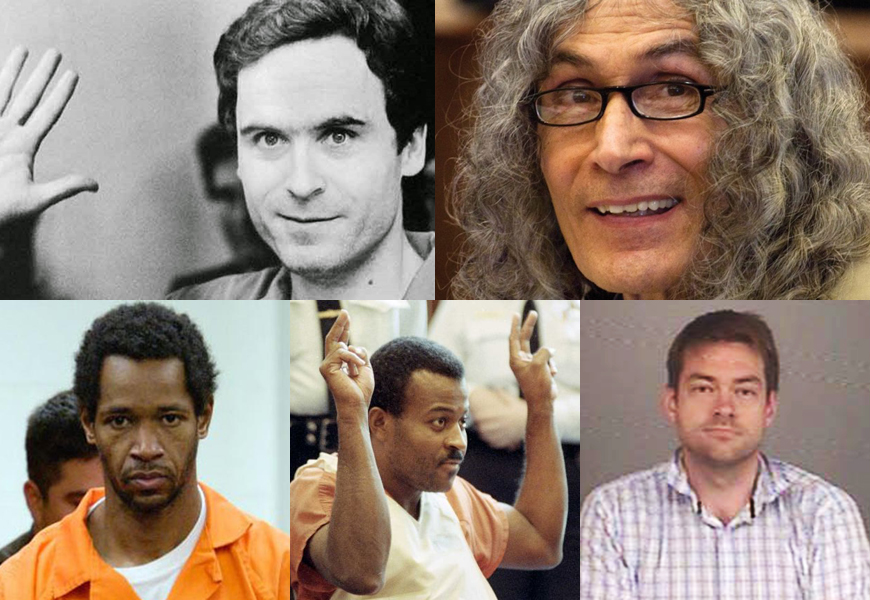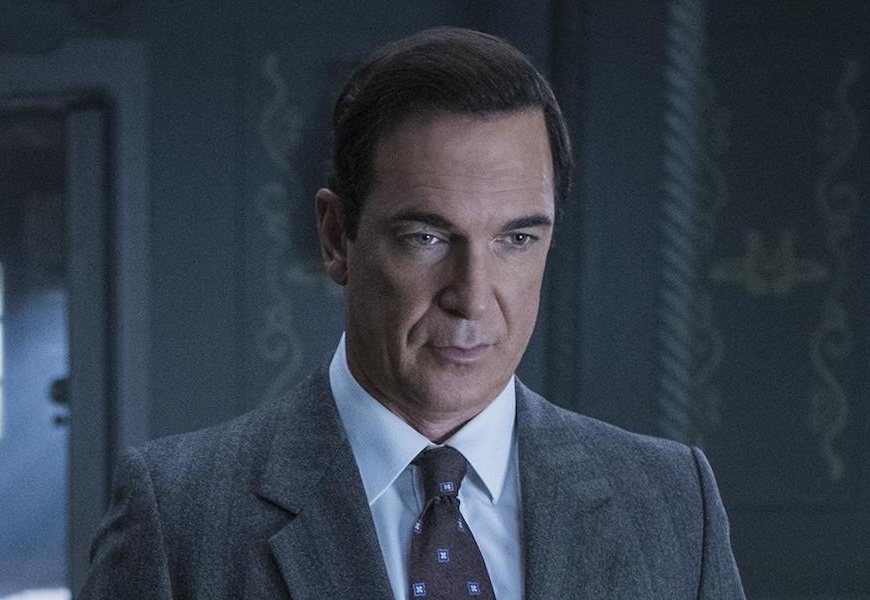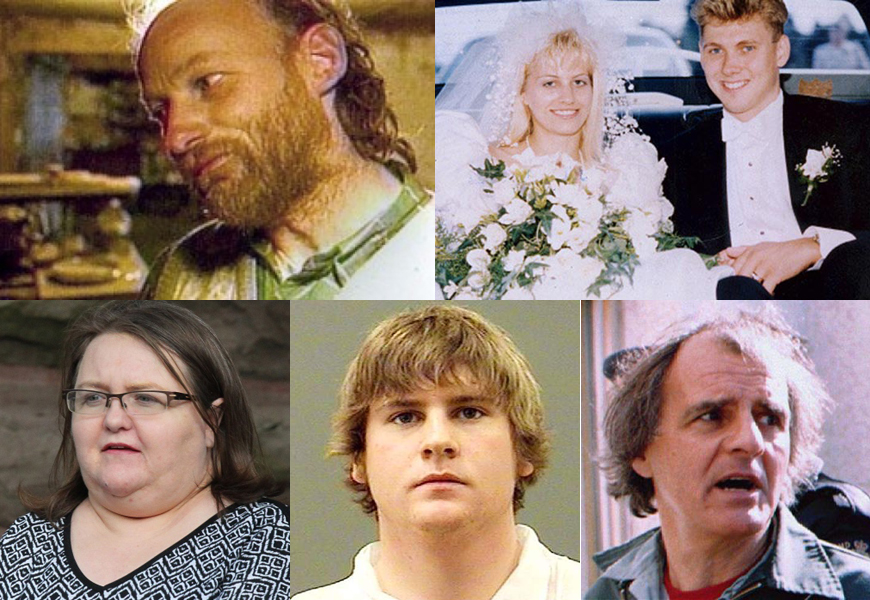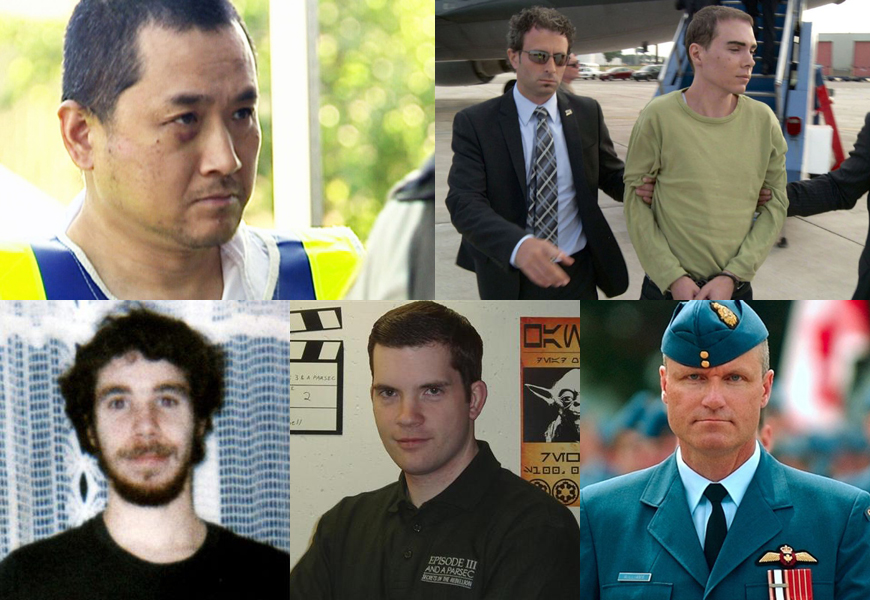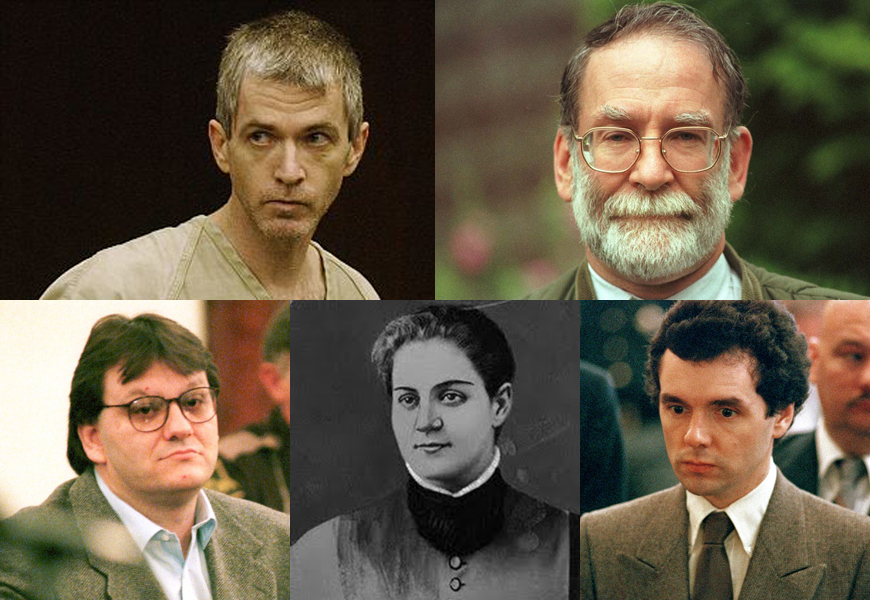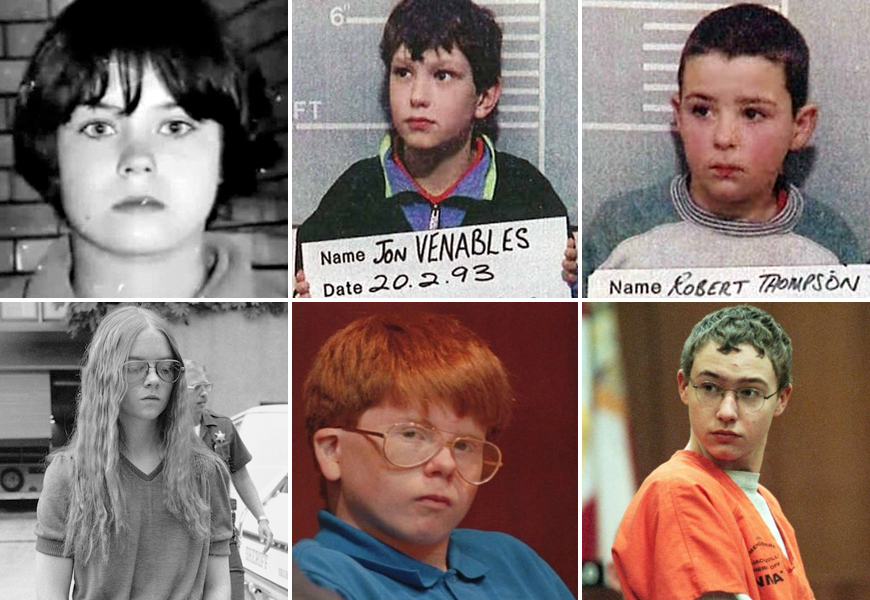Welcome to True Crime Tuesday where we review, recommend and generally obsess over everything crime-related.
Everyone, even cold-blooded killers, has the right to a fair trial and being considered innocent until proven guilty. Defendants who can’t afford a lawyer are eligible for a free public defender and that’s because the law is complicated. It takes years of training and experience to be able to navigate the court system and understand how to present a case to a judge and jury successfully. That’s why most trials involve the defendant sitting there while his or her lawyer does all the work to get them acquitted.
That being said, there will always be exceptions to the rule, and that includes accused murderers who think they can represent themselves better than any lawyer ever could. Generally, the ones who choose to do this are intelligent, full of themselves, and just a little bit delusional. Here are 5 criminals who insisted on representing themselves at their murder trials.
Ted Bundy
Notorious for being incredibly charming and intelligent, Ted Bundy was actually enrolled in law school for a short time before his killing spree between 1974 and 1978. In 1977, Bundy was charged with the murder of Caryn Campbell and he elected to serve as his own attorney. He was therefore excused from wearing handcuffs and leg shackles and allowed time in the courthouse’s law library during a recess at the preliminary trial. It was then that he managed to jump out a window and take off onto the Aspen Mountain where he remained undetected for six days before finally getting caught.
Back in prison, Bundy hatched another plan to escape, which he did on December 30th 1977. He made it to Florida where he committed at least three more murders and three assaults within a month before finally getting arrested. On trial again, Bundy was appointed five attorneys but opted to handle the majority of his defence himself. One of his lawyers, Polly Nelson wrote in her book Defending the Devil: My Story as Ted Bundy’s Last Lawyer that Ted “sabotaged the entire defence effort out of spite, distrust, and grandiose delusion. [He] was facing murder charges, with a possible death sentence, and all that mattered to him apparently was that he be in charge.” His need to be in charge ended in a guilty verdict and a death sentence which was carried out on January 24th, 1989.
Rodney Alcala
Rapist and serial murderer Rodney Alcala had already been tried, convicted, and sentenced to death twice when he went on trial a third time on five more murder charges. This time, he elected to act as his own attorney. As both defendant and defence attorney, Alcala took the stand and played the roles of both interrogator and witness, changing his voice to ask himself questions. As his “attorney” he addressed himself as “Mr. Alcala” and then answered the questions as himself.
As himself, Alcala told jurors about his supposed alibi during the kidnapping of Robin Samsoe, a 12-year-old girl he had already been convicted of killing. He also showed the jury a clip from his appearance as a contestant on the game show The Dating Game in an attempt to prove earrings found in his possession and used as evidence that he killed Samsoe were actually his. Alcala made no attempt to dispute the charges he was actually on trial for other than to say he didn’t remember killing any of the women. The jury found him guilty after less than two days of deliberation and he was sentenced to death for a third time.
John Allen Muhammad
Known as the Beltway Snipers, John Allen Muhammad and his accomplice Lee Boyd Malvo started their crime spree in February 2002 crossing state lines into Alabama, Arizona, Florida, Georgia, Louisiana, Texas and Washington. They killed 17 people and injured 10 more before they were caught in October of the same year. Muhammad went on trial a year later for murder and was granted the right to represent himself. Throughout the trial, Muhammad claimed the DNA and ballistic evidence against him was planted and the police had framed him.
Muhammad also cross-examined his much-younger accomplice Malvo who claimed he was the one that pulled the trigger for every attack. Malvo accused Mohammad of taking him in and “making [him] into a monster”. Mohammad ended up being convicted and sentenced to death and then convicted of six more counts of murder when Malvo admitted he lied about being the trigger man. Muhammad was executed by lethal injection in 2009.
Colin Ferguson
On December 7, 1993, Colin Ferguson boarded a Long Island Rail Road train, pulled out a 9mm pistol and started shooting at passengers. He killed six people and wounded 19 before he was stopped by three other passengers. Eye witnesses reported that he walked down the aisle saying “I’m going to get you” and briefly facing each victim before he shot them. Lawyers appointed to Ferguson called for a psychiatric evaluation and planned to pursue an insanity defence despite the fact that the attack had clearly been planned. The psych eval concluded Ferguson was suffering from paranoid personality disorder but was competent to stand trial.
Originally, Ferguson’s lawyer’s pursued a defence they called “black rage” which claimed that Ferguson had been driven insane by racial prejudice and couldn’t be held criminally liable for his actions. Ferguson then suddenly began to claim he had nothing to do with the attack whatsoever and decided he wanted to defend himself. He went on to cross-examine the police officers that arrested him, his own victims, and even requested President Bill Clinton as a witness. While he admitted he brought the gun onto the train, he claimed he fell asleep and another man stole it and started shooting.
Despite his efforts, Ferguson was found guilty. Before sentencing him to six consecutive life sentences and an additional 25 years for each of the 19 counts of attempted murder, the judge said “in my almost 21 years on the bench, I have never presided over a trial with a more selfish and self-centered defendant.”
Dellen Millard
Dellen Millard was already convicted of the first-degree murder of Tim Bosma when he went to trial for the murder of Laura Babcock in late 2017. He chose to represent himself at trial despite the reality that a first degree murder conviction comes with a mandatory sentence of life in prison. The fact that Millard was already spending life in prison for Bosma’s murder probably made him more willing to give representing himself a shot. During the trial, Millard questioned Babcock’s loved ones, including her own father, about her lifestyle, sexual history, and mental health.
Millard already had a reputation for being a egotistical, entitled, and cruel, but his cross-examinations of witnesses called to help convict him drove that home. He asked them detailed questions about things that were unrelated to the case in an attempt to humiliate them, and asked Babcock’s father point blank if he was uncomfortable. During his closing arguments, Millard claimed it hadn’t even been proven that Babcock was dead and said “I’d like to ask what is an unreasonable doubt? I put that question out there because that’s something that comes out in philosophy: Am I really here? Do I exist? Is this all a dream?” Despite his attempts to confuse the jury, Millard was found guilty of murdering Babcock and is set to be sentenced next week and then go on trial yet again in the spring for the murder of his own father—and this time he’s hired himself a real lawyer.

